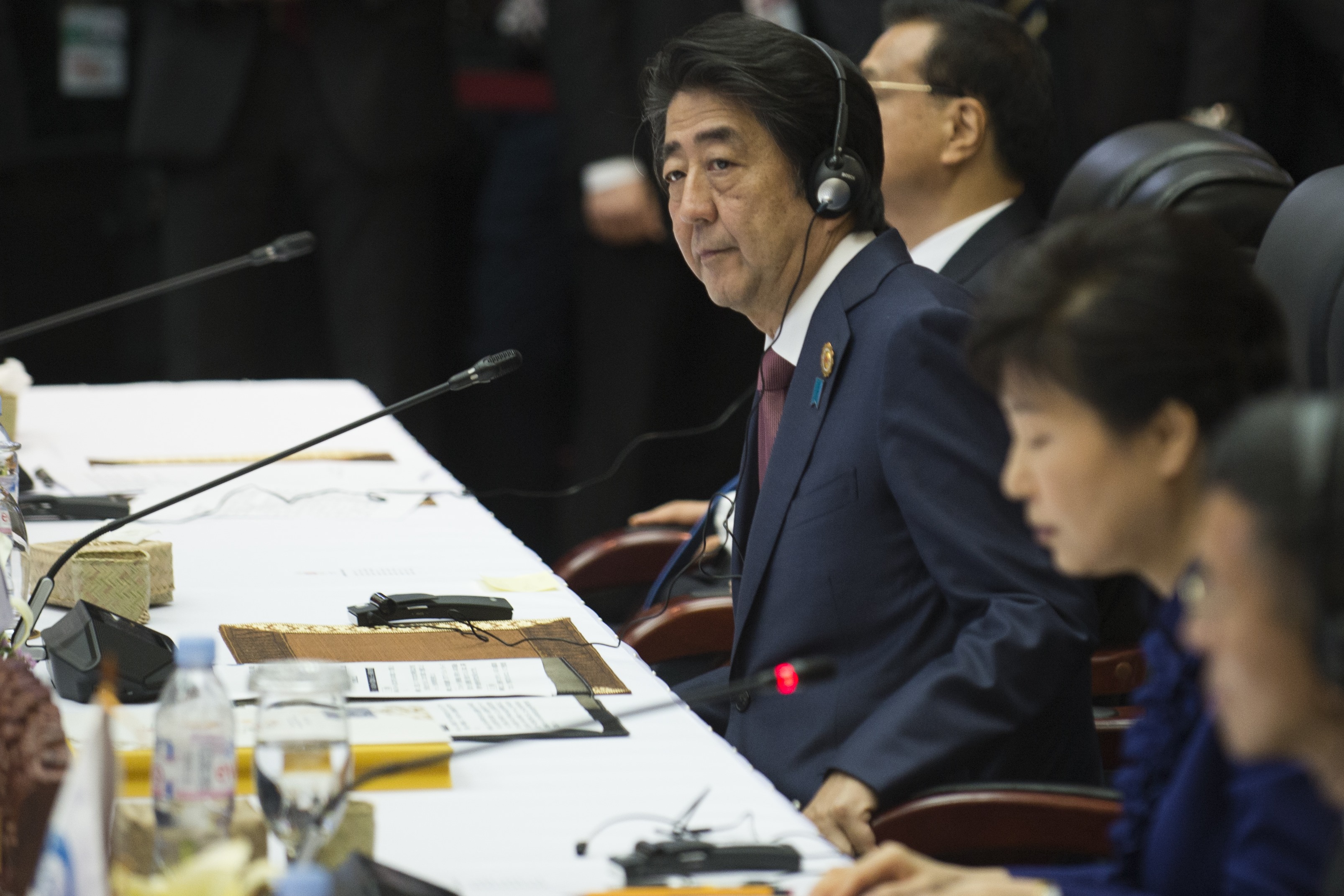
ASEAN leaders gather in Vientiane for the 28th and 29th ASEAN Summits held between September 6 to 8. / AFP PHOTO /
VIENTIANE, Laos (AFP) — Japan is “seriously concerned” about Beijing’s increasingly muscular claims in the South China Sea, Prime Minister Shinzo Abe told Asian leaders Wednesday.
Beijing insists it has sovereign rights to almost all of the strategically vital waters, where the Philippines, Vietnam, Malaysia, Brunei and Taiwan also have claims.
It also has a simmering territorial row with Tokyo over disputed islands in the East China Sea.
“I am seriously concerned with the continuing attempts to change unilaterally the status quo in the East and South China Sea,” Abe said at a regional summit in Laos hosted by the 10-member Association of Southeast Asian Nations (ASEAN).
“I hope that both parties to the dispute in the South China Sea will abide by the ruling by the China-Philippines tribunal court, which legally binds the parties to the dispute, and it will lead to a peaceful settlement of the dispute,” he added, according to a briefing by foreign press secretary Yasuhisa Kawamura.
The gathering in Laos is the first ASEAN meeting since an international court ruled in July that China’s claims to the sea had no legal basis, and that its artificial island building programme in the waters was illegal.
It was a sweeping victory for the Philippines, which filed the case in 2013.
China has ignored the ruling, announcing penalties for “illegal” fishing in the sea and continuing its reclamation activities.
Japan’s dispute with China is over uninhabited islands controlled by Tokyo. They are known as the Senkakus in Japan and as the Diaoyus in China.
© 1994-2016 Agence France-Presse







